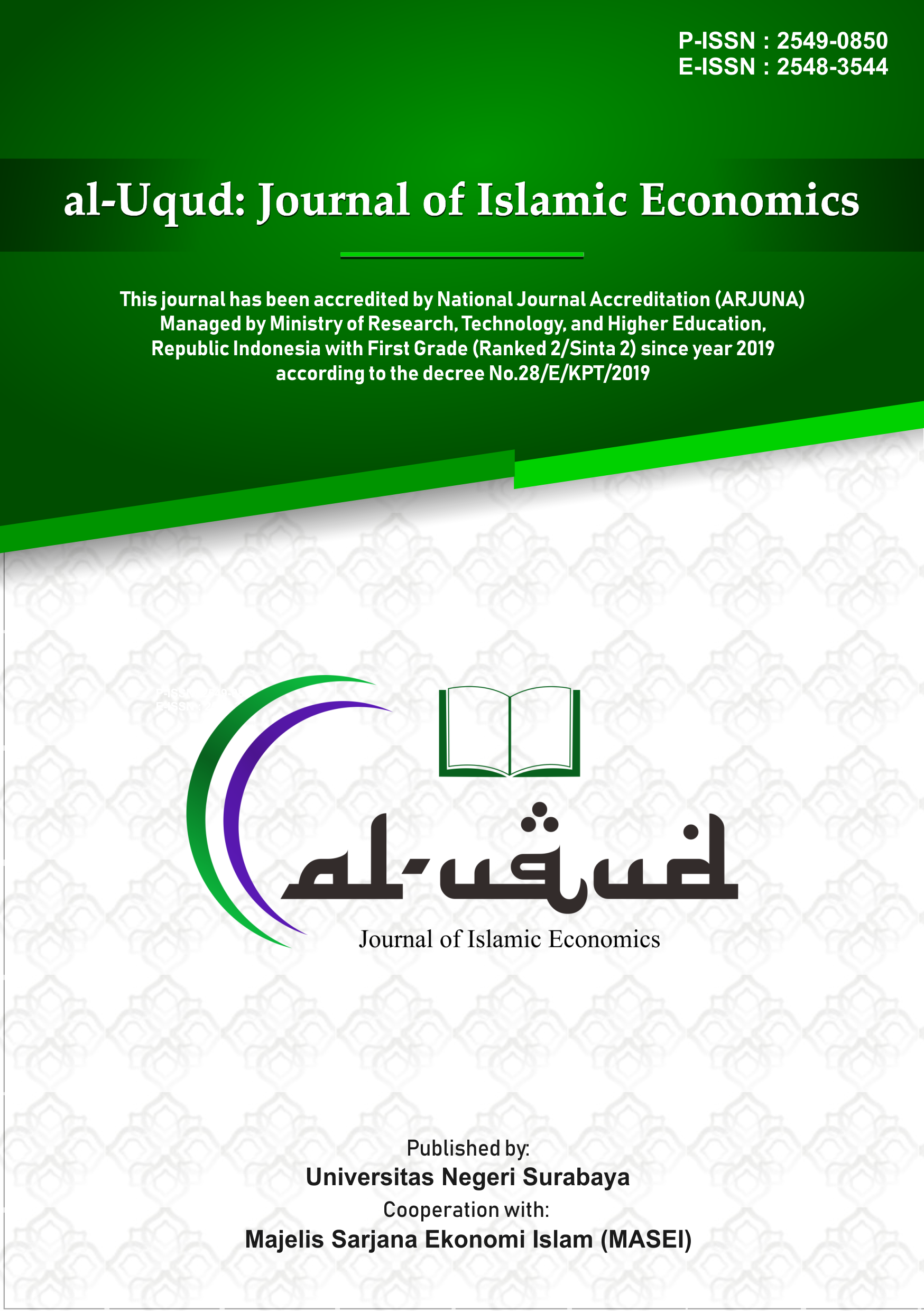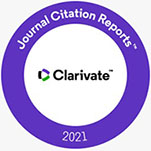Technology acceptance of zakat payment platform: An analysis of modified of unified theory of acceptance and use of technology
DOI:
https://doi.org/10.26740/aluqud.v6n1.p142-159Abstract
This study aimed to determine and analyse the factors that affect a zakat payer receiving and using the zakat platform to pay the zakat. A total of 264 self-administered questionnaires were distributed to respondents who have been paid zakat with the platform. The data were analysed using variance-based structural modelling (PLS-SEM) to examine the hypothesised relationships. The results show that performance expectations and social influence positively and significantly affect behavioural intentions. Facility conditions and behavioural intention have influenced positive and significant impacts on the behaviour of using the online zakat payment platform. Furthermore, this is caused by the trust of zakat payers against online zakat payment platforms that afford to pay zakat faster completion when compared to paying zakat offline. It is also supported by encouragement from the surrounding environment of zakat payers such as: family, work colleagues, community and charity organisations who use the online zakat payment platform.
References
Badan Amil Zakat Nasional. (2018). Outlook Zakat Indonesia.
Effendi, N. (2018). Refleksi Pengelolaan Zakat & Tantangan Revolusi Industri 4.0.
Harvan. (2017). Bolehkah menunaikan zakat secara online. https://www.rappler.com/world/bahasa-indonesia/173467-bolehkah-zakat-online/
Lai, D. C., Lai, I. K., & Jordan, E. (2009). An Extended UTAUT Model for the Study of Negative User Adoption Behaviours of Mobile Commerce. ICEB 2009 Proceedings (Macau, SAR China). 117. https://aisel.aisnet.org/iceb2009/117
Parhamnia, F. (2022). The Journal of Academic Librarianship Investigating mobile acceptance in academic library services based on Unified Theory of Acceptance and Use of Technology Model ( UTAUT-2 ). The Journal of Academic Librarianship, 48(5), 102570. https://doi.org/10.1016/j.acalib.2022.102570
Ronaghi, M. H., & Forouharfar, A. (2020). A contextualized study of the usage of the Internet of things (IoTs) in smart farming in a typical Middle Eastern country within the context of Unified Theory of Acceptance and Use of Technology model (UTAUT). Technology in Society, 63(September). https://doi.org/10.1016/j.techsoc.2020.101415
Sukindar. (2017). Berzakat Kini Bisa Lewat M-Cash. https://www.digination.id/read/011425/berzakat-kini-bisa-lewat-m-cash
Sulistyowati, H. (2013). Analisis Penerimaan dan Penggunaan Pengguna Terhadap Penerapan Sistem E-office di Universitas Airlangga dengan Menggunakan Model Unified Theory of Acceptance and Use of Technology (UTAUT). LIBRI-NET, 6 (4), 21-22. https://repository.unair.ac.id/66996
Syarif. (2018). Pembayaran Non Tunai Berdampak Kepada Turunya ASN Bayar Zakat.
Tan, P. J. B. (2013). Applying the UTAUT to understand factors affecting the use of english e-learning websites in Taiwan. SAGE Open, 3(4). https://doi.org/10.1177/2158244013503837
Tan, E. and Lau, J.L. (2016). Behavioural intention to adopt mobile banking among the millennial generation. Young Consumers, 17(1), 18-31. https://doi.org/10.1108/YC-07-2015-00537
Downloads
Published
How to Cite
Issue
Section
License
Copyright (c) 2022 The author(s)

This work is licensed under a Creative Commons Attribution 4.0 International License.
CC BY 4.0 Abstract views: 999
,
Abstract views: 999
, PDF Downloads: 1046
PDF Downloads: 1046








